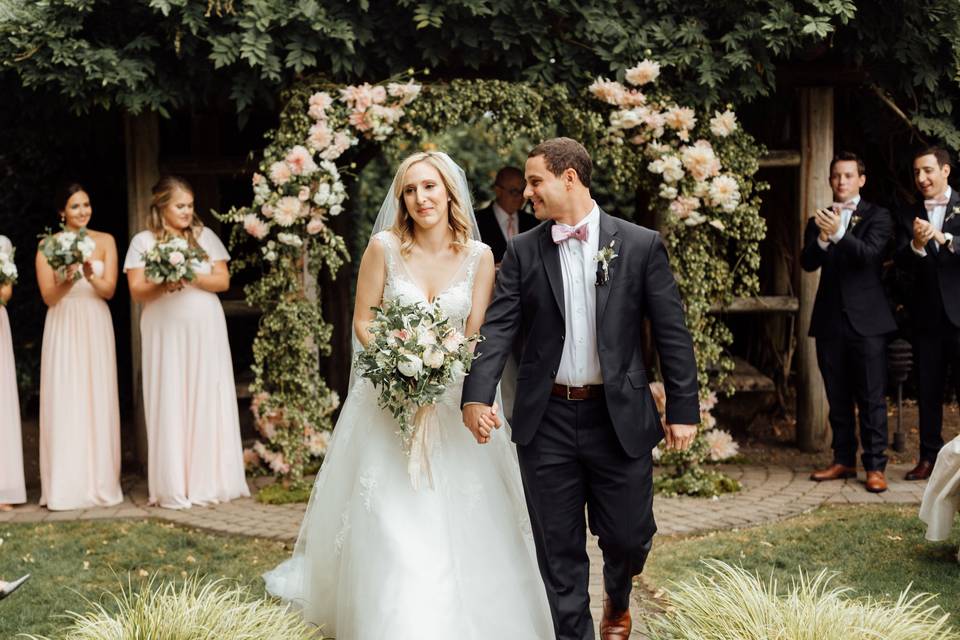Our wedding day was everything we dreamed of—golden fields, soft sunlight, laughter echoing from the barn. The scent of wildflowers drifted on the breeze, and for a while, it felt like something out of a movie. But there was one cloud in the sky that refused to pass: Jenna, my sister-in-law.
From the moment the bridal party assembled, Jenna made her displeasure known. She squinted at the sun like it had personally offended her, tugged at her dress with irritation, and muttered about how it clung in the wrong places. When the photographer tried to gather everyone for a group photo, she scowled at her reflection and groaned, “Great. I look like I stuck my finger in a socket.”
Nina, my wife, tried to soothe her. She handed her a water bottle and brushed back a loose strand of hair, all while smiling through what must have felt like sandpaper. I knew Jenna had a history of mood swings, but seeing her sulk and sneer on our wedding day brought it to a whole new level. Still, Nina made excuses: “She gets nervous around crowds.” I didn’t have the heart to say that thirty guests wasn’t exactly a stadium.

Throughout the day, Jenna hovered at the edge of every photo, reluctantly participating. The photographer did her best to capture moments between Nina and her sister, but Jenna’s eye rolls, fake smiles, and sneers were hard to ignore. Nina smiled through it all, pretending not to notice the digs and the attitude. She’d chosen Jenna to be a bridesmaid as a way to reconnect. I could tell she was still hoping for a breakthrough.
When the photos arrived weeks later, Nina and I were curled up on the couch, sipping wine and reliving the joy. The gallery was beautiful—candid moments, sun-drenched hugs, laughter frozen in time. Nina sent the link to the bridal party and mentioned we’d be sharing some shots on social media.

That’s when Jenna called, seething. “You let the photographer capture me looking like THIS? Delete every photo I’m in or I swear I’ll ruin you both!” Her rant was filled with insults about her hair, her dress, her expression. Nina tried to calm her down, but Jenna was relentless.
The call ended abruptly, leaving Nina on the verge of tears. She’d tried so hard to include her sister, and now it felt like she was being punished for it.
Later that night, while Nina slept, I made a decision. If Jenna didn’t want to be in the photos, I’d grant her wish. I stayed up, carefully cropping her out of every single image. She was usually on the edge anyway, so it wasn’t difficult. When I finished, I uploaded our favorite shots—Jenna-free—to Facebook.

The next day, my phone lit up. Jenna again. This time, she was furious that we’d removed her from the photos. “You erased me like I wasn’t even there!” she yelled. I calmly reminded her she’d demanded just that. She had no response and hung up.
When I told Nina what happened, she was stunned—then she laughed. Not a happy laugh, but the kind of laugh that comes from the relief of finally breaking a toxic cycle. “You actually stood up to her,” she said, tears in her eyes. “Maybe that’s what needed to happen.”
The fallout was swift. Jenna cut off contact. Nina’s parents chimed in with guilt-laced messages about forgiveness and family unity. But Nina didn’t bend. Every day, she stood a little taller. One evening, folding laundry, she finally said it aloud: “I should’ve stopped protecting her years ago. It’s exhausting.”
I told her she didn’t have to do it anymore. And in that quiet moment, she leaned into me and whispered, “Thank you.”
For the first time in a long time, it felt like we could both breathe. And the wedding photos? They were perfect—just like our day.



